How EU Dropped Turkey's Reins (?)
Adelina Marini, June 4, 2013
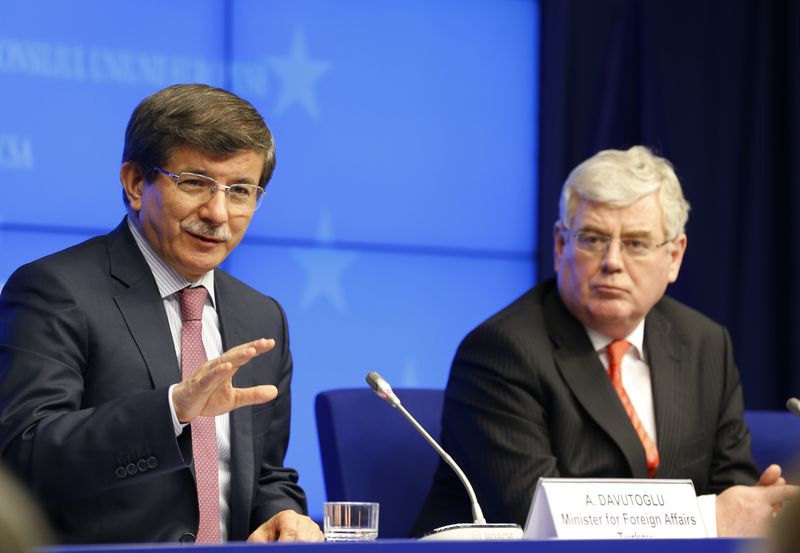 Being strongly focused on itself, its future and present, the European Union often in the past decade was making one and the same error - it thought that the world was going round with the same speed as EU did around itself. Alas, the popping up of the Lisbon Treaty after almost 10 years of adjustments and negotiations found the EU highly unprepared for the boomerang of globalisation which returned with enormous strength and hit EU's heart - the eurozone. The Union was neither in condition to react nor was it capable of producing a durable solution after the example of the United States, for instance, which many analysts and politicians love to make comparisons with. In spite of the new positions of a president of the European Council and the "single telephone number" for the foreign policy, embodied in Catherine Ashton, EU remains highly impotent to take quick decisions in crisis situations - both domestically and externally.
Being strongly focused on itself, its future and present, the European Union often in the past decade was making one and the same error - it thought that the world was going round with the same speed as EU did around itself. Alas, the popping up of the Lisbon Treaty after almost 10 years of adjustments and negotiations found the EU highly unprepared for the boomerang of globalisation which returned with enormous strength and hit EU's heart - the eurozone. The Union was neither in condition to react nor was it capable of producing a durable solution after the example of the United States, for instance, which many analysts and politicians love to make comparisons with. In spite of the new positions of a president of the European Council and the "single telephone number" for the foreign policy, embodied in Catherine Ashton, EU remains highly impotent to take quick decisions in crisis situations - both domestically and externally.
The situation in Turkey in the past several days illustrates time and again precisely this impotence and shortsightedness. Even 4-5 years back, it was visible that Turkey could not be treated in the same way as the rest of the candidate countries because it was different in every possible aspect. Instead of taking into account the peculiarities and to decide once and for all what it wanted from Turkey, with Turkey and about Turkey, EU preferred to freeze its relations with the country until better days came, which, however, the Union had no intentions to work for to make them to happen. Excluding, of course, the lonely efforts of the EU enlargement commissioner, Stefan Fule, who tried to restore the interest toward the commitments of the most problematic candidate countries through, more or less, the same initiative, although for Turkey it was much more broadly designed.
And if for Macedonia and Bosnia and Herzegovina the special high level dialogue was introduced about which the Commission was reiterating mantrically that it is not what you think it is - namely a replacement of the negotiations process - for Turkey an empty folder was opened, entitled "positive agenda". Empty, because the Turkish side was given the freedom to fill whatever it wanted this folder with. But this in no way changed the fact that the relations with Turkey continued to be frozen somewhere in 2010 when was the last time a negotiations chapter was opened. Since then, Cyprus which effectively blocks 8 chapters, practically defaulted and the EU was forced not simply to resort to a relatively cheap bailout, but it stepped on Russia's foot. In the meantime, another EU country that has been effectively blocking the negotiations process with Turkey - France - also started to sink economically, but it was from there that came the signal for a revival of relations - French President Francois Hollande visited Turkey and hinted unequivocally that it was high time the negotiations to be renewed.
Then followed a visit by the European president, Herman Van Rompuy, and then was the long-awaited Association Council EU-Turkey, which took place on May 27 in Brussels.
But it is no longer 2010. It is 2013
EU's surprise was that nothing was the same and this was quite evident last week when the country's Foreign Minster Davutoglu, his Irish counterpart Eamon Gilmore and EU Enlargement Commissioner Stefan Fule met in Brussels. Instead of the obedient and waving its tail in anticipation for another bone and a caress on the head Turkey, in Brussels appeared an untamed and at first glance amicable monster, whose economy is flourishing, its regional influence is growing because of the 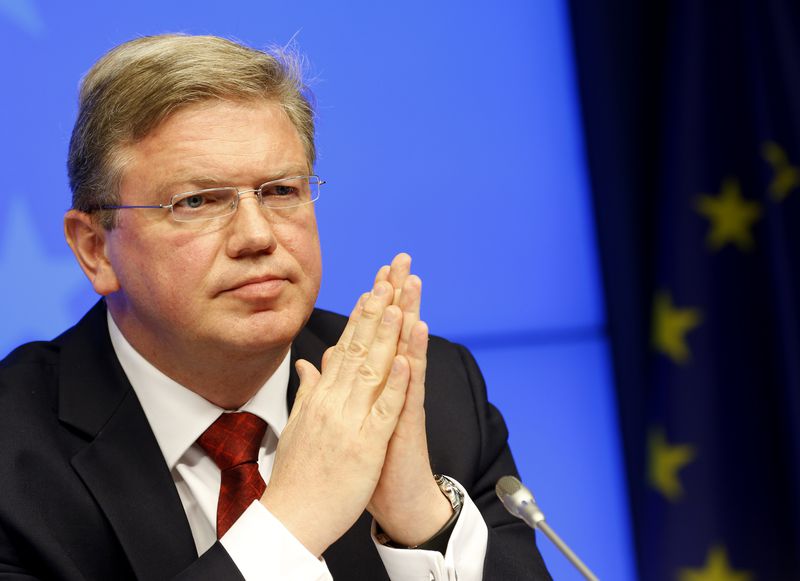 several very well played diplomatic moves in the Syria conflict and before that with Israel. All this won the country respect and brought new self-confidence which it does not miss a chance to turn into benefits.
several very well played diplomatic moves in the Syria conflict and before that with Israel. All this won the country respect and brought new self-confidence which it does not miss a chance to turn into benefits.
This is exactly what did in Brussels Ahmet Davutoglu on May 27th when he said very clearly and firmly that it is high time for a "new strategic vision for the EU-Turkey relations", which translated from the diplomatic language means that Turkey no longer recognises the old model of negotiations - of opening and closing chapters. Turkey's top diplomat again underscored that for Turkey the EU perspective remained a strategic goal, but he did what was necessary to make it clear to his hosts that the conditions to achieve these goals have changed. Most of all, the approach needs to be changed - the stick and the carrot will no longer be tolerated by Turkey. And without wasting more time, Ahmet Davutoglu put forward the new conditions: first, Turkey should be involved in an appropriate manner when free trade agreements are negotiated between the EU and third parties because Turkey is part of the Customs Union, hence Ankara should be a partner. Otherwise, the Turkish foreign minster explained, conditions are created for unfair trade against Turkey.
Second, Turkey should no longer be required to sign the readmission agreement as a pre-condition for EU to fulfil its commitment to ensure visa-free regime for the Turkish citizens as it does for all the other countries from the enlargement process. Simply, this will happen simultaneously - the moment when Turkey signs, the visas will drop off. For now, however, EU is not in a position to play this high ball. The EU enlargement commissioner looked completely serious and showed no emotions during the news conference after the meeting. He said that there was a "chance" for a reopening of the negotiations and underlined that the positive agenda should continue. And according to Ireland's top diplomat Eamon Gilmore, new energy was injected in the process. Will the negotiations resume with Turkey, will become clear this month.
But in the conclusions of the Association Council, something the Commission included in the progress report last year is recalled. Ankara's efforts to continue with the political reforms are noted with approval, but it is reminded that it is vital Turkey to ensure freedom of expression, of religion, property, rights of trade unions, of minorities, of women and children, to ensure gender equality and to fight discrimination, as well as to abolish torture.
What would have happened if the clashes in Turkey had happened earlier?
However, the Turks rage, which started from a harmless protest against the government's plans to reconstruct one of the few left green areas in Istanbul which includes building a mall, evolved into clashes and demonstrations against the growing ever more authoritarian rule of Prime Minister Erdogan, who is at the helm for a third consecutive term now. The most impressive in the mass demonstrations, which some analysts have started calling "Turkish spring", is the lack of adequate behaviour of media. The clashes between the security forces and the demonstrators revealed precisely what the Commission has been criticising for years, somewhat silently though, and without the necessary leverage to exert influence - namely the negotiations.
Moreover, instead of reacting immediately, the EU waited for three whole days and a reaction appeared on Sunday by the high representative for the foreign policy and security, Catherine Ashton. In a short statement from her office, it is pointed that Ms Ashton was deeply concerned with the violence in Istanbul and other cities in the country and expressed regret from the disproportionate use of power by the security forces. Baroness Ashton also wished quick recovery of all the injured and called for restraint from all sides, for the violence to stop and a dialogue to begin to find a peaceful solution.
However, the situation already is out of control as Bulgarian journalist in Turkey Nihal Özergan reported on Facebook. In a broad report for her followers in that social network, she points that the developments in Turkey are beginning to get out of control together with a growing dose of disproportionate force which the police is applying. Nihal Özergan also writes that currently Turkey is divided "again" in two and that the situation is highly explosive. On Twitter, which Premier Erdogan called a dangerous social network that distributes lies, European Parliament chief Martin Schulz tweeted 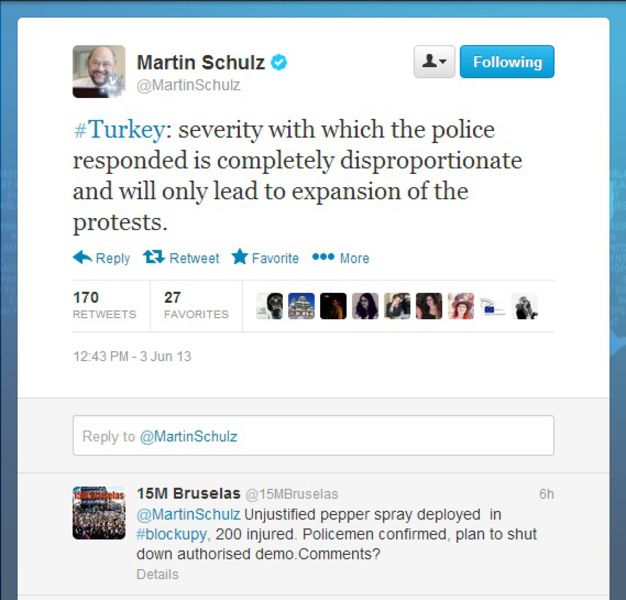 that "the severity with which the police responded is completely disproportionate and will only lead to expansion of the protests". There already are calls by some groups in the Europarliament the negotiations with Turkey not to be renewed which, according to others, will be a mistake.
that "the severity with which the police responded is completely disproportionate and will only lead to expansion of the protests". There already are calls by some groups in the Europarliament the negotiations with Turkey not to be renewed which, according to others, will be a mistake.
All this, however, again illustrates how incapable the EU is to react adequately to a situation which is happening in its own neighbourhood, especially in a such a strategically important country. All the European documents, related one way or another to Turkey, begin by saying that EU "reaffirmed the importance it attached to its relations with Turkey, a candidate country and a key partner for the European Union, considering its dynamic economy and strategic location". The thing is that nothing of essence stands behind this empty phrase and Turkey knows this very well. And the developments in Turkey show in a very painful way the entire uselessness of EU's efforts so far. It revealed the Union's complete helplessness not just to react accordingly. It revealed that in the past three years EU entirely dropped the reins of Turkey. And I do not dare forecast whether it would be possible at all to take them back without this to cost both sides dearly.
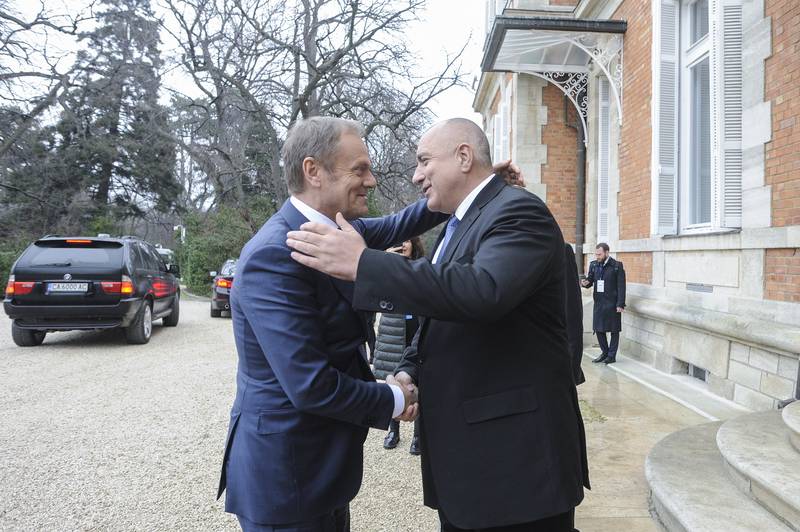 Donald Tusk, Boyko Borissov | © Council of the EU
Donald Tusk, Boyko Borissov | © Council of the EU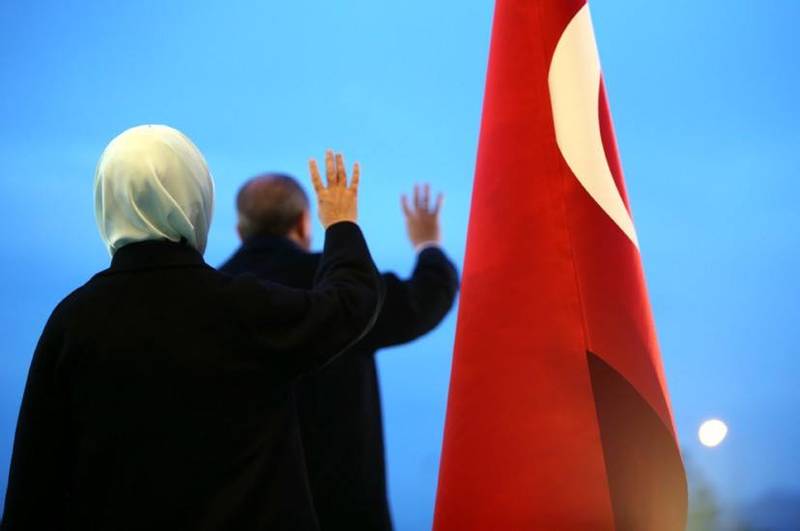 | © Turkey Presidency
| © Turkey Presidency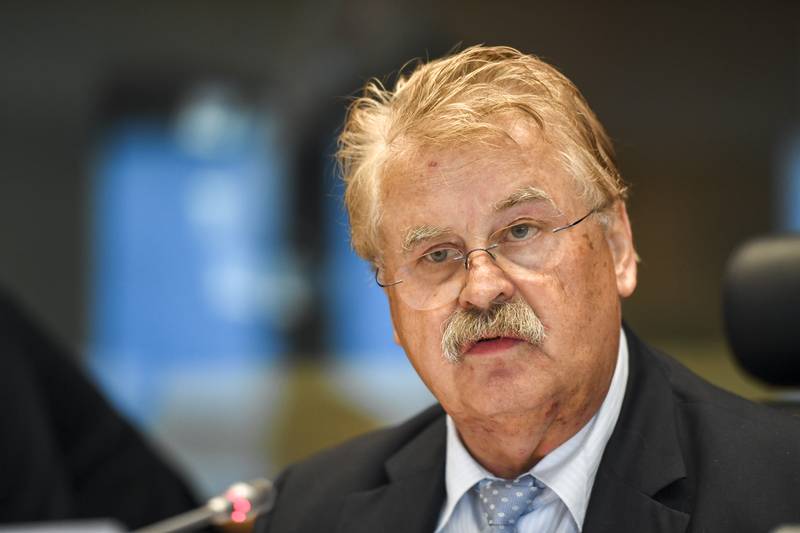 Elmar Brok | © European Parliament
Elmar Brok | © European Parliament